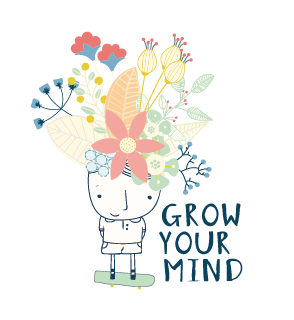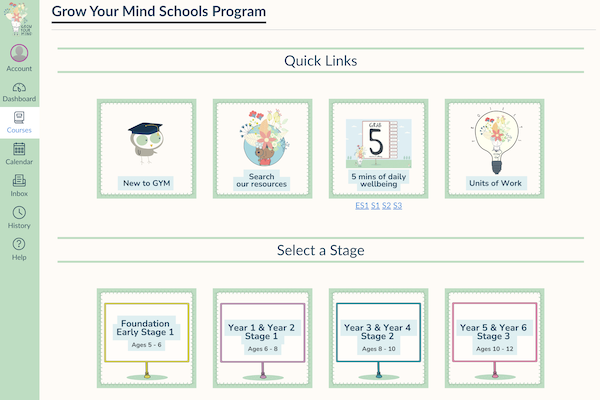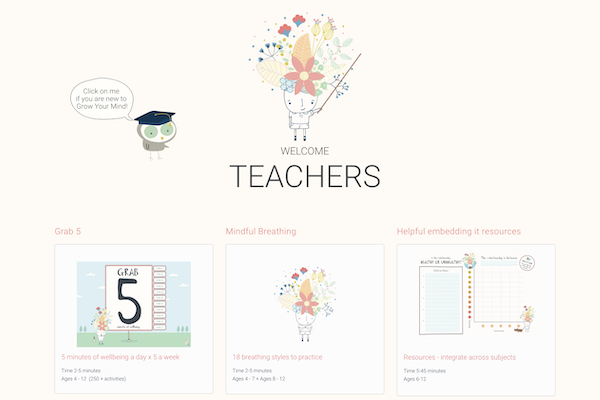Let’s discuss the impacts of the past 2 years of student wellbeing and how poor mental health affects students behaviour, performance and outcomes in the classroom.
What a time to be a kid. The ups. The downs. Even the backflips. Usually kids like rollercoasters, but the one most of us have been on for the last two years hasn’t been so fun.
School has been cancelled. So has sports. So has seeing friends and family, or anything beyond a 10km radius for that matter.
2021, like the year before it, was a big one. And unfortunately, most of us didn’t get the summer holidays we had hoped for to try to recover. We’re still facing changes every day that affect not only the way we live our lives, but our stress levels amidst a dynamic pandemic.
Big years and big changes are synonymous with big feelings – especially for kids. They don’t have the perspective we have or understand why things have had to change so much. They feel scared, so much has been disrupted in their world because of a virus that might make them and the ones they love sick. They can’t see that these two years, maybe more, are just two years and that there will be many more great ones ahead. But perhaps they shouldn’t have to, because losing two years as an adult is one thing but losing them from your childhood is another completely.
As we start a new school year it’s vital for educators to understand the base from which many students are entering the year from, so they can meet them with the empathy and understanding needed to get them through. Because if we want our students to flourish and meet their full potential, we need to start with their mental health.
How Aussie kids are really feeling
The pandemic hit at a time when one in seven young people (aged 4-17) were already experiencing a mental health condition in any given year.
The Australian Institute of Health and Welfare continually monitors different age groups and found that 1 in 5 (20%) young people aged 11–17 had either high or very high levels of psychological distress in their 2013-2014 report. And a survey by the Australian Primary Principals Association (APPA) found that 80% of school leaders believe anxiety is a significant issue for students. Some things that may affect a young person’s mental health in their day to day lives include bullying, body dysmorphia and general anxiety.
But the pandemic did make things worse. Research is showing that “the indirect effects of the pandemic on children and adolescents are as substantial – if not more so – than the impact of being infected with Covid-19”.
Given half of all the mental health conditions we experience throughout the course of our lives will have started by age 14, there’s a strong case for an increased focus on wellbeing and mental health in the classroom.
In fact, an Australian survey of more than 6,000 families found that students with mental ill health scored lower on average in every test domain across every year level than students who did not have mental disorders. Suggesting mental health might have an even bigger impact on learning than we thought.
Year 3 students with a mental disorder were on average, seven to 11 months behind their peers without a mental disorder, but this got worse as students got older. By Year 9 they were an average of 1.5 to 2.8 years behind. Students with mental ill health also miss more days of school. Those in Years 1-6 with a mental disorder miss an average of 4 more days per year than students without. This number is even higher for secondary students. Those in Years 7-12 with mental ill health miss an average of 24 days per year, while their peers without a mental disorder only miss 11.
Given the loss of face-to-face time many students had last, we know the pandemic has already contributed to learning gaps. And we don’t need mental health impacts widening these gaps further.
With so much work to be done to support student wellbeing, it should be a major focus for all schools in 2022 and beyond. Because if we don’t support wellbeing, we don’t support student learning. But what should this support actually look like?
A new way to approach wellbeing
When we talk about supporting student mental health at school, there’s one thing we must do. We must stop talking about it as if it exists separately from everything else that happens in the classroom. When we take a siloed approach to teaching mental health, students take a siloed approach to looking after it, and that doesn’t work.
If schools want to truly support the wellbeing of students, they need to do so by building a wellbeing culture for the whole school. One that focuses on educating and providing practical skills to help students take care of their own mental health. One that is woven into classroom norms as well as lessons, so it becomes second nature. But also, one that focuses on the teacher — because you can’t fill from an empty cup.
Teachers are often forgotten in school wellbeing programs, which is interesting given we know teachers are facing unprecedented levels of stress and often they’re the ones expected to run these programs.
Research tells us that teacher wellbeing directly affects students and if the aim of our wellbeing programs is to teach students to take care of their mental health, we need to first make sure our teachers are doing the same.
When we start with teacher wellbeing, we’re laying the foundation for positive mental health outcomes for the whole school community. But in order to do this we must educate teachers about the most effective, evidence-based ways to look after themselves. We must show them that they can’t afford not to prioritise their own mental health, and we must ensure the school maintains a culture that gives teachers the space to do this.
Ideally, we do this with a program that gives the whole school a common language for wellbeing. That way, teachers, students, leaders, staff and parents can support each other and make looking after mental health as common as looking after physical health.
Grow Your Mind is one program that does exactly this. Designed by teachers, for teachers, the program embeds a foundational language for wellbeing across the whole school by linking social and emotional education directly to the brain with a playful animal analogy that is developmentally appropriate for young students but resonates with older students and adults too.
7 out of 7 kids have mental health, let’s teach them how to look after it
If there’s one thing we’ve learned from the pandemic, it’s just how important it is to take care of our mental health. And we need to teach kids the same.
Prioritising mental health means building resilience, optimism and gratitude and provides the base from which students can learn and grow.
More than 13,000 teachers have helped their students understand how to take care of their mental health with Grow Your Mind. And it’s working. 95% of students who do the program feel more confident to take care of their mental health.
But students aren’t the only ones to benefit. 90% of teachers also felt more confident to look after their mental health after attending a Grow Your Mind Teacher Wellbeing workshop.
To learn more about how Grow Your Mind uses positive psychology and neuroscience to enhance resilience and wellbeing click here, or complete the form below and we will be in touch.


